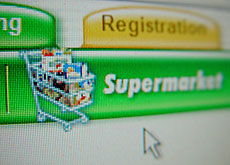
Policymakers grapple with online content

With a major conference on the digital economy underway in Rome, Swiss legal expert Urs Gasser tells swissinfo that content is the new focus of debate.
The 350 delegates attending the meeting are exploring how government policy should respond to the rapid changes in content production, delivery and use.
Jointly organised by Organisation for Economic Co-operation and Development, (OECD) and the Italian technology minister, the conference aims to improve understanding of the implications of the rapid development and changing distribution of digital content.
The two-day event will review the impact of digital content on business models and identify ways to contribute to a supportive environment for broadband content and the Internet.
Gasser, from the Research Center for Information Law at St Gallen University, will chair a panel discussion on new user habits and social attitudes.
swissinfo: What contribution can the conference make towards the future of the digital economy?
Urs Gasser: The focus of the policy debate has shifted recently away from the infrastructure question and more towards the content debate, i.e. once the pipes are there, what are we going to do with the capacity?
And that’s exactly where the OECD conference comes into play, taking the next step. Firstly it’s a taking stock exercise about digital content now, looking at what has changed in how we produce and distribute content and how we access and reuse it.
Then there’s the looking ahead part. I see the conference as the beginning of a much longer conversation where we start to think about technological approaches, as well as new emerging business models and appropriate legal and regulatory frameworks to deal with the challenges that are associated with the changes taking place.
swissinfo: What about the panel discussion you are chairing?
U.G.: This panel on user habits and social attitudes addresses another change that we see, less on the distribution side than on the production side or creation side. How are information, knowledge and entertainment used by users in this new environment?
I think the common denominator is that we are really seeing a move towards a more participatory information environment where users are no longer passive receivers of information.
We are increasingly much more interactive, we participate in the production of different things, like open source software, which is a huge phenomenon with large-scale contributions by amateurs. Another example is Wikipedia, peer-produced content as a new mode of how we produce knowledge or entertainment.
swissinfo: Do you think we can expect lots more litigation on the question of content rights in future?
U.G.: Unfortunately yes. I expect the next wave to be about the creative reuse of copyright-protected materials. That’s probably the next battlefield, less the distribution but more the creative reuse.
There again we have a mismatch between the legal framework and the available technology. On the one hand we have the copyright framework that grants authors exclusive rights to control their so-called derivative works. On the other hand there is this disruptive technology, for instance software where you can create your own songs by taking other songs and mixing them.
So there’s cool technology that the consumer electronics industry is putting a lot of money into developing and marketing and of course kids and early adopters love it. The next struggle could be to get the balance right.
An international conference, dubbed the Future of the Digital Economy, takes place in Rome on January 30–31.
Its focus is on understanding the implications of how digital content is used and distributed.
It is jointly organised by the Organisation for Economic Co-operation and Development and the Italian Minister for Innovation and Technologies.
A Swiss survey from 2004 shows that of people over the age of 15:
63% used the internet – 54% of them surf the web at home, 40% at work and 6% elsewhere.
70% of men and 55% of women were web users.
70% of web users have a computer at home of which 59% are online.
In the German-speaking part of the country 56% are web users, 46% in the French-speaking and 34% in the Italian-speaking parts of the country.

In compliance with the JTI standards
More: SWI swissinfo.ch certified by the Journalism Trust Initiative



























You can find an overview of ongoing debates with our journalists here . Please join us!
If you want to start a conversation about a topic raised in this article or want to report factual errors, email us at english@swissinfo.ch.